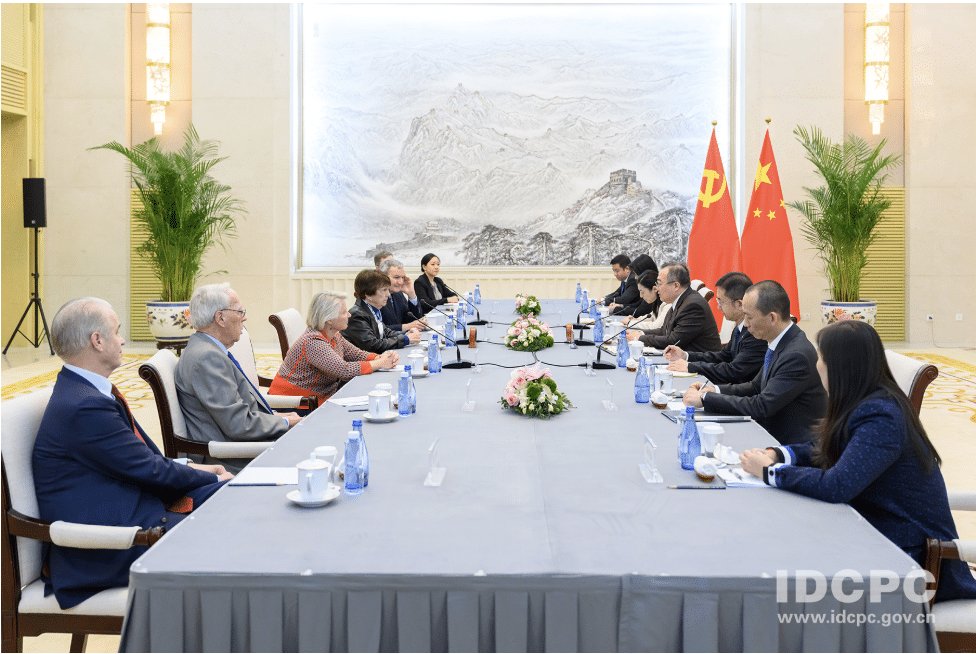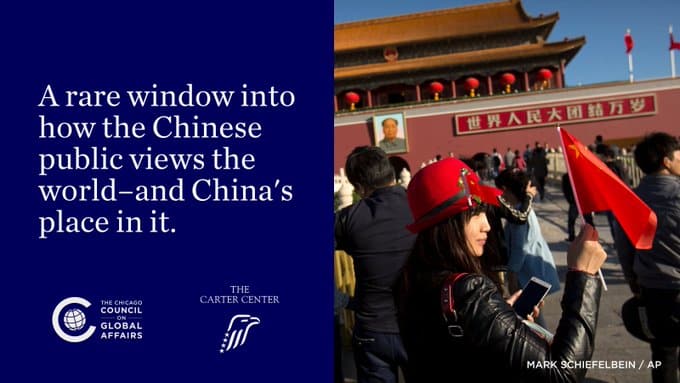President Trump’s Quiet Diplomacy Behind U.S.–China–Japan Phone Calls
US-China Briefing Points: 4 Takeaways from the Xi-Trump Summit
- 1. “We have developed a friendship”
Neither candidate in the 2016 American elections could be described as “friendly” towards the People’s Republic of China, but the language President Donald Trump has used throughout the years to describe China throughout the years has been antagonistic at best, and vulgar and hostile at worst.
The tone of the long-awaited meeting was entirely different than the vicious statements of the campaign. The visit possessed all the pomp and circumstance of a state visit of a foreign leader. Cameras caught no signs of hostility between the two leaders. President Trump would say he and President Xi “have developed a friendship”, and that “long term, we are going to have a very, very great relationship.”
David Dollar, Senior Fellow for Foreign Policy at the Brookings Institution: “Most importantly, the atmosphere was polite and respectful, compared to the heated rhetoric of the campaign. Trump characterized his relationship with President Xi as ‘outstanding.’ It seems less likely than ever that the U.S. would start a trade war with harsh protectionist measures, though there may still be some in the administration who would like to go that route.”
Song Guoyou, Deputy Director of the Center for American Studies at Fudan University, in the Paper called attention to the three greatest successes of the visit: the establishment of a congenial, personal relationship between Presidents Trump and Xi, reaching a common understanding on a number of macro-level and strategic issues in the bilateral relationship, and opening the line of communication between the two leaders in order to avoid potential conflict.
For a right-wing view… read Gordon Chang, lawyer and conservative national security pundit in the American Interest: “Trump, in a few short hours, put Xi in his place, cut the ambitious autocrat down to size, and maybe pushed the Chinese state in better directions.” To Chang, the meeting was expected to be a “well-laid Chinese trap” which became “a debacle for Xi” after the American president purposefully humiliated the Chinese leader by arriving late, receiving a “perfunctory gesture of welcome,” and being upstaged by the American strike on Syria. “Xi’s failure to respond to Trump, to fail to defend his country’s interests in Syria, is bound to have consequences back home,” Chang writes, “the Chinese supremo built a career by looking strong and dominating opponents, but Trump, Xi’s opponents will say, humiliated China.”
- 2. Overshadowed? Reading the Syria conflict’s role in U.S. China relations

On Thursday evening, soon after the Chinese and American delegations parted ways, President Trump announced he had launched a targeted strike of 59 tomahawk missiles on Syrian government airfields in response to the chemical weapons attacks on civilians earlier in the week. The missile strike, the first direct military action by the United States against Bashar al-Assad’s army of Trump’s presidency, dominated news coverage for the next several days, shifting national attention away from the Mar-a-Lago summit.
Some American commentators thought China would be “shaken” by the military strike, while Secretary of State Rex Tillerson told reporters that President Xi “understood that such a response was necessary when people are killing children.” But given Beijing’s web of relationships with the government and rebels and Syria, as well as with Sunnis and Shiites in the Greater Middle East, President Xi’s response to the changing Syria crisis will likely be far more nuanced.
China’s Syria Calculus: China’s level of concern about Syria is not the same as Russia’s. Nonetheless, “there are several reasons why the Sunni-Shiite divide is of particular concern to China,” wrote Gal Luft, Senior Advisor on the White House Energy Security Council, in Foreign Policy magazine last year. Most important of which is that “a restive Middle East” stands blatantly in the way of the development of the “One Belt, One Road” Initiative.
In an effort to curb sectarianism, “Xi has sought ways for China to inject itself into the Syrian crisis, inviting both the Syrian Foreign Minister… and the head of [an] opposition group… to high-level meetings in Beijing in an effort to promote peaceful resolution.” … “Chinese diplomacy, active as it may be, has no chance of overriding centuries of bad blood between Sunnis and Shiites… But China can help keep the flames under control” with joint Sunni-Shi’a-China economic initiatives along the Belt and Road.
- 3. Looming threat of North Korea

North Korea, according to Kevin Rudd (Paywall), former Australian Prime Minister and president of the Asia Society Policy Institute, is “the problem that dwarfs all other [priorities]”. As Pyongyang progresses towards enhanced missile range and warhead miniaturization, Washington believes “business as usual” on North Korea is no longer a viable solution, and will put pressure on Beijing. Xi’s government deeply understands the threat posed by North Korea’s missile development, but continues to insist that instability on the peninsula will be a greater problem.
Backgrounder: Tristan Volpe, Nuclear Policy Program Fellow at the Carnegie Endowment for International Peace, writes: “North Korea’s steady development of nuclear weapons raises the question of why Pyongyang used its underlying nuclear program to pursue coercive diplomacy at all. North Korean decision making is notoriously difficult to estimate, but the historical record suggestions that the Kim regime long desired nuclear weapons to offset conventional inferiority.”
Wu Si-Ke, Foreign Affairs Committee Member of the CPPCC: “It is worth notice that Pyongyang has adopted nuclearization as its foremost goal precisely because of its sense of insecurity deriving from US policies… Over the years, North Korea has had to make difficult choices between preserving national security, political power and developing economy and improving people’s livelihoods. Its single-minded pursuit of nuclear capabilities, at the price of the national economy and people’s livelihoods, is sinking the country into a dangerous, unsustainable whirlpool.”
Recent: On Wednesday, Only days after leaving the United States, President Xi called (Paywall) Donald Trump, urging a peaceful solution to the Korean nuclear issue. Will Washington move towards more frequent and open communication with Beijing?
- 4. Trade war averted, for now

Trade is a lifelong obsession for President Trump, who criticized presidents from Ronald Reagan to Barack Obama for failing to protect American workers in trade deals. Prior to his election, candidate Trump told supporters he would immediately leave negotiations for the Trans-Pacific Partnership, put multilateral trade organizations like NAFTA and the WTO “on notice,” place tariffs of up to 45% on Chinese-made products, and immediately label China a currency manipulator.
But since taking office, President Trump has elected to take on trade at a slower pace. At the Mar-a-Lago summit, Presidents Trump and Xi agreed on a one hundred day plan to address trade fairness through a series of negotiations, leading the Financial Times (Paywall) to proclaim, “trade war averted:”
“For the many people who had been worried earlier this year that America’s famously impetuous president might set off a trade war with China, the result was encouraging…Mr. Ross, who is leading the Trump trade team, went in to the meetings with priority areas that he wanted to discuss. The Chinese surprisingly responded with the idea of the 100-day plan, embracing a staple of American politics since Franklin Roosevelt promised a rapid response to the Great Depression.”
As “low-hanging fruit,” the Chinese side offered to eliminate a 13-year-old ban on American beef and raise investment caps in the preliminary US-China Bilateral Investment Treaty. These concessions alone may not be significant enough for the Trump Administration, but they show a baseline of respect for its interests.
On what America can do next: Li Bin, Professor of International Relations at Tsinghua University and Senior Fellow with the Carnegie-Tsinghua Center for Global Policy, estimates from an analysis of American trade deficits with other trading partners, that “if the United States were to liberalize its export barriers against China to the same level as those applicable to France, U.S. exports to China would increase by $45.7-$76.0 billion, at a growth rate of 82.1-137.59%, thereby narrowing the U.S.-China trade deficit by 20.28-33.74%.”
It is difficult to fathom that today’s Congress would remove these political barriers. Last year, Members of Congress in both parties, from backbenchers to the Senate Minority Leader, called on the Justice Department to investigate Dalian Wanda on the pretense that their American acquisitions represented “foreign propaganda influence over the American media.” A Congress that firmly believes China is a threat even in the entertainment industry will be far more willing to levy tariffs and push the White House to label China a currency manipulator than to reduce political barriers to exports.
Recent: On Wednesday, Trump tells the Wall Street Journal he will not name China a currency manipulator this year.
Overall, Trump and Xi made substantial, necessary progress in US-China relations last week. The fact that the two presidents could start off their relationship cordially is significant progress from last year in and of itself, but the two sides will need to use that baseline of trust to resolve a number of issues in the relationship. The true test will whether or not the two nations can improve the level of mutual trust and resolve longstanding bilateral disputes, while simultaneously dealing with tumultuous political climates at home and abroad. In President Trump’s own words, “nobody knew it could be so complicated.”
Alec Nash is a 2016 graduate of Emory University and a contributor to uscnpm.org. You can find him on Twitter @alechnash.








